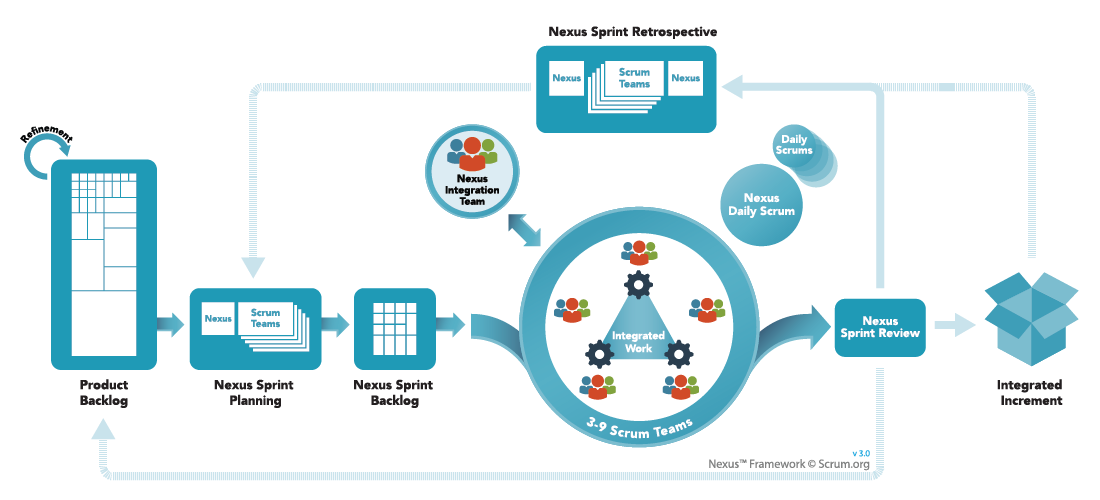The Scaled Professional Scrum (SPS) workshop is a two-day interactive course that shows and explores how to scale software delivery endeavors, using Scrum and Nexus, with three teams or more.
Course Overview
Over the 2 days, students will simulate a large software development project using the Nexus Framework. The workshop is delivered using an end-to-end case study where students work together to organize and simulate a scaled software development project. Throughout the workshop, students will be introduced to more than 50 practices that can be used to help reduce complexity and dependencies at scale.
This workshop will show you how to launch, structure, staff, and manage a large agile or Scrum project. During the two days you will organize and simulate a scaled software development project to learn the infrastructure, tools and practices needed for success. You will leave knowing how to scale Scrum in order to maximize the value of your software development initiative.
Who should attend
The Scaled Professional Scrum course is recommended for development leads, development managers, project/program managers and anyone else involved in coaching, formulating, participating in or managing scaled product development using agile and Scrum.


